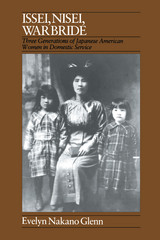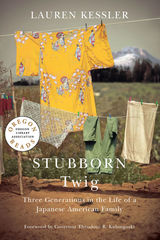
Genia spent two years in Auschwitz. Ze'ev fought with the Partisans. Olga hid in the Aryan section of Warsaw. Anya fled to Russia. Laura lived in Libya under the Italian fascist regime. All five survived the Holocaust, emigrated to Israel, and started families there. How the traumatic experience of these survivors has been transmitted, even transformed, from one generation to the next is the focus of Fear and Hope.
From survivors to grandchildren, members of these families narrate their own stories across three generations, revealing their different ways of confronting the original trauma of the Holocaust. Dan Bar-On's biographical analyses of these life stories identify several main themes that run throughout: how family members reconstruct major life events in their narratives, what stories remain untold, and what is remembered and what forgotten. Together, these life stories and analyses eloquently explore the intergenerational reverberations of the Holocaust, particularly the ongoing tension between achieving renewal in the present and preserving the past. We learn firsthand that the third generation often exerts a healing influence in these families: their spontaneous questions open blocked communications between their parents and their grandparents. And we see that those in the second generation, often viewed as passive recipients of familial fallout from the Holocaust, actually play a complex and active role in navigating between their parents and their children.
This book has implications far beyond the horrific reality at its heart. A unique account of the interplay between individual biography and wider social and cultural processes, Fear and Hope offers a fresh perspective on the transgenerational effects of trauma--and new hope for families facing the formidable task of "working through."


To celebrate Oregon's 150th birthday, the Oregon Library Association has chosen one book for all Oregonians to read: Stubborn Twig. Lauren Kessler's award-winning book, the selection for the statewide Oregon Reads program, is a classic story of immigrants making their way in a new land. It is a living work of social history that rings with the power of truth and the drama of fiction, a moving saga about the challenges of becoming an American.
Masuo Yasui traveled from Japan across the other Oregon Trail — the one that spanned the Pacific Ocean — in 1903. Like most immigrants, he came with big dreams and empty pockets. Working on the railroads, in a cannery, and as a houseboy before settling in Hood River, Oregon, he opened a store, raised a large family, and became one of the area's most successful orchardists.
As Masuo broke the race barrier in the local business community, his American-born children broke it in school, scouts and sports, excelling in most everything they tried. For the Yasuis' first-born son, the constraints and contradictions of being both Japanese and American led to tragedy. But his seven brothers and sisters prevailed, becoming doctors, lawyers, teachers, and farmers. It was a classic tale of the American dream come true — until December 7, 1941, changed their lives forever.
The Yasuis were among the 120,000 people of Japanese ancestry along the West Coast who were forced from their homes and interned in vast inland "relocation camps." Masuo was arrested as a spy and imprisoned for the rest of the war; his family was shamed and broken. Yet the Yasuis endured, as succeeding generations took up the challenge of finding their identity as Americans. Stubborn Twig is their story — a story at once tragic and triumphant, one that bears eloquent witness to both the promise and the peril of America.
READERS
Browse our collection.
PUBLISHERS
See BiblioVault's publisher services.
STUDENT SERVICES
Files for college accessibility offices.
UChicago Accessibility Resources
home | accessibility | search | about | contact us
BiblioVault ® 2001 - 2024
The University of Chicago Press









